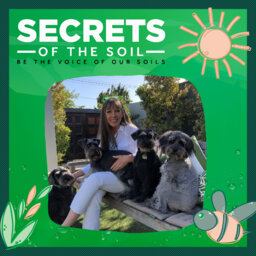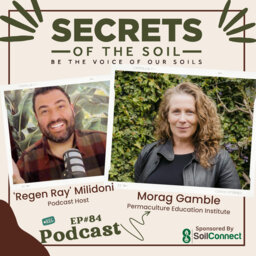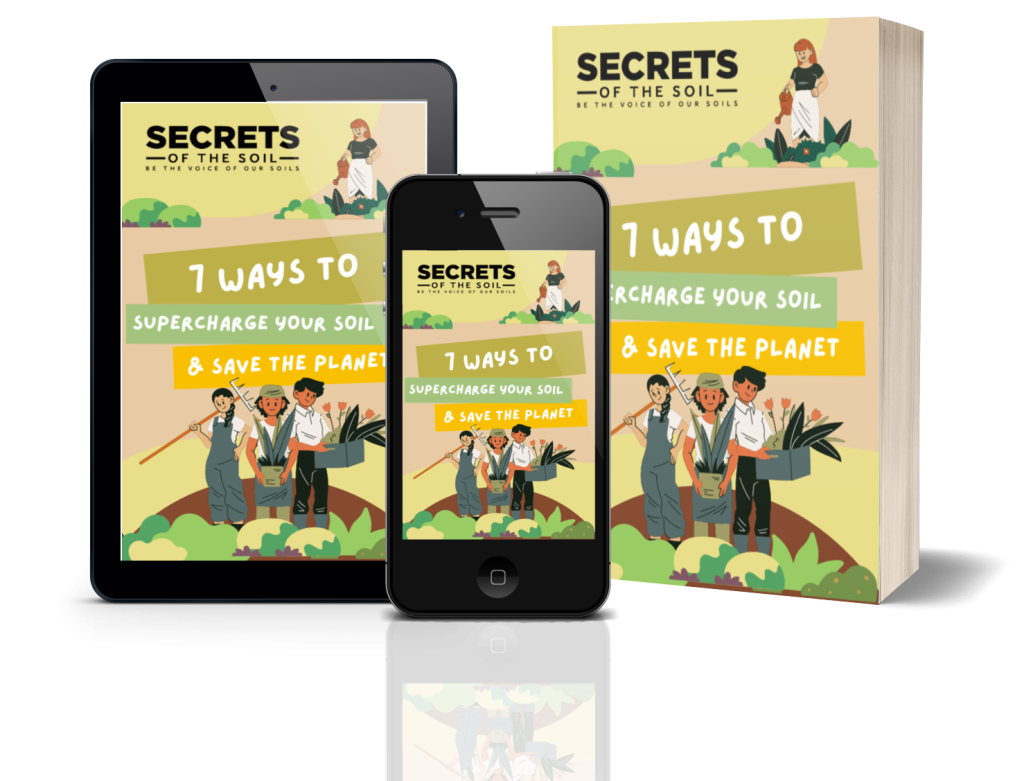🌱 Excited to share the latest episode of “Secrets of the Soil”! 🎙️ In Episode 40, I had a fascinating conversation with Katie Flannigan, a dedicated vegan regenerative farmer. Her journey offers incredible insights into sustainable agriculture and conscious consumption.
🔑 Key Takeaways:
– Mindful Consumption: We discussed the importance of knowing where your food comes from and appreciating the effort behind its production. This can lead to more thoughtful and sustainable consumption choices.
– Animal-Free Regenerative Farming: Katie shared her unique approach to regenerative farming without exploiting animals. She highlighted the benefits of integrating animals into the ecosystem without the need for slaughter.
– Environmental Stewardship: The conversation emphasized the need to rethink our food systems, reduce overall consumption, and embrace sustainable farming practices to support biodiversity and food security.
Join us for an enlightening discussion and be inspired to tread more lightly on our planet! 🌍
Who is Katie Flannigan?
Katie Flannigan is an emerging author/illustrator. A lover of picture books Katie has long harboured a dream to create them. Her illustrations have been described as quirky and humorous and she uses mixed media, handmade figurines, and found objects to create her work.
Katie has completed a Faber Academy course with Allen & Unwin for Children’s Books and was awarded a Maurice Saxby Mentorship in 2016. She also volunteers with the Koala Kids Book Club at the Royal Children’s Hospital in her hometown of Melbourne.

In the dynamic world of sustainable agriculture, vegan regenerative farmer Katie Flannigan shares her journey and insights in the latest episode of “Secrets of the Soil.” Hosted by Regen Ray Milidoni, this episode dives deep into the disconnect between urban consumers and the realities of farming, the importance of understanding food seasonality, and the need for responsible consumption to ensure environmental sustainability.
A Vegan Approach to Regenerative Farming
Katie Flannigan, a mom, author, and part-time farmer, initially faced a dilemma—how to generate income from her 55-acre property without resorting to animal agriculture. Her vegan beliefs posed a unique challenge within the realm of regenerative farming, which often incorporates animals to enhance soil health. Through perseverance and a commitment to her values, Katie discovered ways to utilize animals on her property without exploiting them.
The Role of Animals in Regenerative Practices
Katie’s stance on veganism did not dissuade her from recognizing the benefits that animals can bring to the land. While she found the concept of using animals in regenerative agriculture confronting, she gradually embraced the idea of having animals on her farm without the intent of slaughtering them. This perspective opens a broader conversation about balancing ethical considerations with agricultural practices that benefit the soil.
Connecting Urban Dwellers with Farming Realities
A significant portion of the conversation between Regen Ray and Katie revolved around the disconnect many city dwellers experience from their food sources. Urbanites often lack an understanding of the immense time, effort, and seasonal challenges involved in food production. By bridging this gap, Katie and Regen Ray emphasize the importance of being conscious consumers who respect and appreciate the labor behind their meals.
Embracing Food Seasonality
Understanding the seasonality of produce underscores the need to be conscious consumers. It involves knowing when certain foods are in season, which not only supports local farmers but also ensures fresher and more nutritious produce. Katie and Regen discuss how this awareness can significantly impact our food choices and our gratitude towards the farming process.
Addiction to Cheese and Misinformation
The podcast delves into common misconceptions about food, such as the level of awareness about the dairy industry and the concept of “fake meat.” Katie recounts her journey to veganism, which included a harsh realization about cruelty in factory farming—a behind-the-scenes look that many consumers remain oblivious to. The conversation also touches upon the addictive nature of cheese and the growing array of plant-based alternatives that can make transitions easier.
The Environmental Impact of Food Choices
One of the more poignant discussions in the episode revolves around the environmental consequences of our food production systems. Katie advocates for reducing the consumption of animal products as a practical step towards food security and sustainability. Both she and Regen emphasize the crucial need to rethink our food production habits, including the push for more sustainable farming practices and reducing the impact of monoculture on biodiversity.
Innovations in Plant-Based and Bioidentical Products
Katie shares insights into the promising potential of bioidentical products and emerging technologies such as 3D-printed meat and plant-based proteins. These innovations advocate for reduced land and water usage while addressing the growing global population’s nutritional needs. This conversation reinforces the importance of embracing technological advancements to create a sustainable future for food production.
The Path to Conscious Consumption
Regen Ray acknowledges the conversation as a reflection on our roles as consumers. By choosing nutrient-dense, organic, and locally produced foods, we support biodiversity and reduce environmental harm. Katie’s perspective urges listeners to live happily and healthily without causing harm, promoting respect for the planet’s ecosystems and biodiversity.
To engage with nature, care for the soil, and spread awareness about sustainable practices. Katie Flannigan’s journey and insights serve as an important reminder of our collective responsibility to tread kindly on this planet. Through education and open conversations, we can better understand the impacts of our food choices, bridge the disconnect between urban consumers and farmers, and take meaningful steps towards a more sustainable future.
For more insights and to engage further with Katie Flannigan’s work, listen to the full episode of “Secrets of the Soil” and visit her website and social media platforms. Remember, every small step towards mindful consumption contributes to the health of our planet and our communities.






